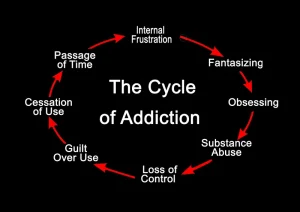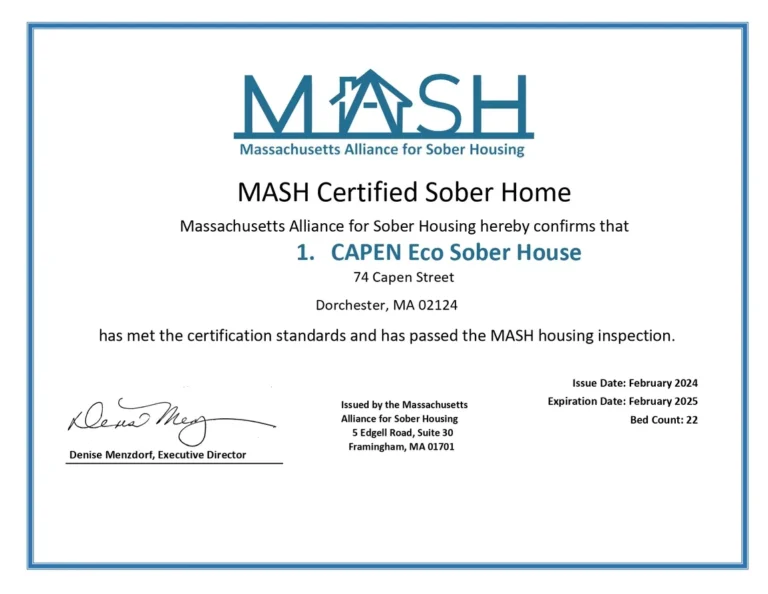
Recognizing dangerous behaviors before you pick substances up again can help to prevent a relapse. Attending or resuming attending meetings of some form of mutual support group can be extremely valuable immediately after a lapse or relapse. Discussing the relapse can yield valuable advice on how to continue recovery without succumbing to the counterproductive feelings of shame or self-pity. relapse prevention plan Distraction is a time-honored way of interrupting unpleasant thoughts of any kind, and particularly valuable for derailing thoughts of using before they reach maximum intensity. One cognitive strategy is to recite a mantra selected and rehearsed in advance. A behavioral strategy is to call and engage in conversation with a friend or other member of your support network.
Identify Triggers
- When we begin to think the old behavior will reduce the cravings, a lapse in maintaining the new behavior is likely to occur.
- More research is needed to understand whether ethno-racial minorities show differential benefit, and if so, whether culturally adapted versions of RP can help address it.
- Ultimately, even if our sobriety isn’t at risk, these tools will flesh out our recoveries and add color, meaning and emotional grounding to our daily lives.
- Your plan might involve a list of the people you will call, the actions you will take, and what you will do instead of returning to substance use.
For example, when new members join the group, icebreakers and interactive activities can help them feel more comfortable. Listening to others’ stories of how they overcame obstacles can be deeply inspiring and motivating. Seeing your peers succeed boosts your own confidence and encourages you to keep moving forward in your journey to lasting sobriety. Addictive behaviors create a difficult-to-break cycle of shame that creates further shame unless explored in a way that allows learning to take place. Shift perspective to see relapse and other “failures” as opportunities to learn.
Lifestyle Changes
Contacting the supportive people in your life can have a tremendous impact on cravings and relapse. Conflicts can arise in all types of group settings, whether due to differing opinions or personal disagreements. It’s important for group facilitators to address conflicts promptly by encouraging open and respectful communication. Jack, a 29-year-old finance professional, struggled with a severe addiction to Adderall, a stimulant drug he started using to stay on top of a demanding job.
A Complete Guide to Writing an Effective Relapse Prevention Plan
It is also necessary to know that they are not a sign of failure; they are inevitable. But their lifespan can be measured in minutes—10 or 15—and that enables people to summon ways https://ecosoberhouse.com/ to resist them or ride them out. Routines build structure and stability, grounding individuals in good habits while providing them with more opportunities for success than failure.

Mindfulness-Based Relapse Prevention
Such feelings sabotage recovery in other ways as well—negative feelings are disquieting and are often what drive people to seek relief or escape in substances to begin with. In addition, feelings of guilt and shame are isolating and discourage people from getting the support that that could be of critical help. Whether or not emotional pain causes addition, every person who has ever experienced an addiction, as well as every friend and family member, knows that addiction creates a great deal of emotional pain. Therapy for those in recovery and their family is often essential for healing those wounds. Ben Fisher is a videographer and content creator who has reached millions of people around the world with his work. Ben created the video blog A String Of Hope in 2019 to share hope and positivity about addiction and recovery.
- Maintaining healthy relationships requires effort and mutual respect.
- AddictionResource aims to present the most accurate, trustworthy, and up-to-date medical content to our readers.
- Embrace each step, knowing that every effort you make contributes to your lasting sobriety.
- But with good coping skills, a person can learn to let go of thoughts of using quickly.
- Stay consistent with your boundaries; this will help others respect them.

The negative thinking that underlies addictive thinking is usually all-or-nothing thinking, disqualifying the positives, catastrophizing, and negatively self-labeling [9]. These thoughts can lead to anxiety, resentments, stress, and depression, all of which can lead to relapse. Cognitive therapy and mind-body relaxation help break old habits and retrain neural circuits to create new, healthier ways of thinking [12,13]. Some researchers divide physical relapse into a “lapse” (the initial drink or drug use) and a “relapse” (a return to uncontrolled using) [8]. Clinical experience has shown that when clients focus too strongly on how much they used during a lapse, they do not fully appreciate the consequences of one drink.

Assessing Personal Triggers and Warning Signs
Cognitive behavioral skills refer to your ability to recognize thought patterns influencing your emotions and determining your behavior. Of drug or alcohol treatment patients are expected to relapse at some point. Have someone on call for weak moments when you might slip back into your old habits.
Avoiding relapses is vital because addiction is a continuous disease that requires ongoing management throughout life. As individuals continue along the path of recovery, there may be times where they feel tempted; it’s important to have measures in place to prevent them from sliding back into old habits. Therefore, a key aspect of recovery is identifying potential triggers and risk factors and avoiding them as much as possible. It can begin with an emotional relapse, followed by mental and then physical relapses.

